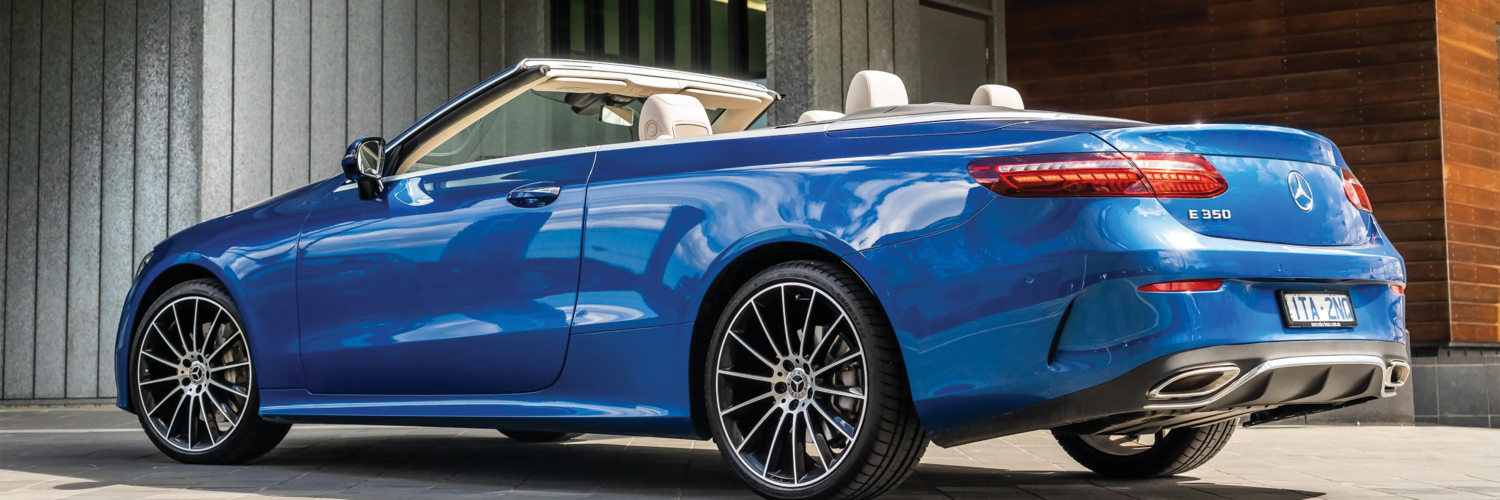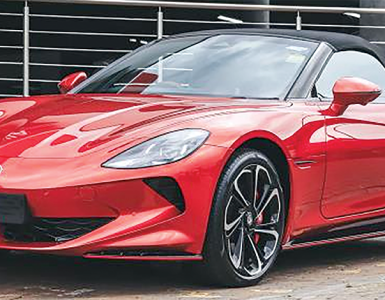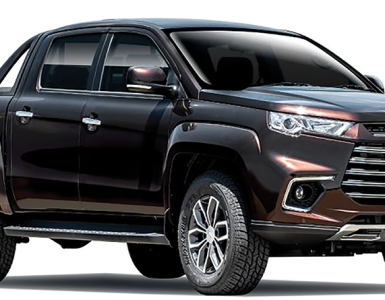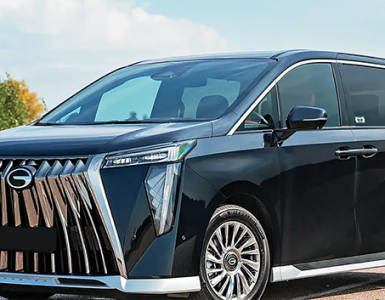SHIFTING LANDSCAPE: BMW and Mercedes under siege with Volvo seemingly at the crossroads as local customers turn away from premium and luxury vehicles
By Ali Mphaki
German brands are having a really rough go lately. Naamsa’s latest vehicle sales data shows that the rise of Chinese vehicles in South Africa is continuing unabated as consumers turn away from premium and luxury vehicles like BMW, Audi and Mercedes-Benz.
This comes as BMW has reduced its dealership network in South Africa by 16% over the past nine years, closing nine dealerships, from 55 in 2015 to 46 in 2024.
The luxury German car brand cited multiple factors, including economic headwinds, declining demand for luxury cars, and the increasing importance of affordability in the South African market.
Sales numbers over the last decade show a significant decline in demand for luxury cars, with BMW’s sales dropping 51% to 11,989 units in 2024. Other luxury brands, such as Mercedes-Benz and Audi, have also experienced significant declines in sales.
In contrast, vehicles from Asian brands, such as Chery, Haval, and Suzuki, have seen massive growth over the same period, with sales increasing by 1,000% to 89,416 units in 2024.
The National Automobile Dealers’ Association (NADA) attributed the trend to the price-sensitivity shift in the South African market, with most buyers shopping in the sub-R350,000 range, where Chinese brands offer strong perceived value at an accessible price point.
BMW’s reduction in dealership network is not an isolated incident, as Volvo has also announced plans to review its local dealership network, with expectations of a significant reduction in the number of dealers.
China was once considered a golden goose for these brands, but now they’re facing huge losses in profit and market share, and it’s not clear if they can compete.
The group’s latest data for October 2024 shows that Chinese car brand, Great Wall Motors (GWM) is outselling 18 different brands in South Africa, many of which have been on the market for far longer.
GWM owns five brands—Haval, WEY, ORA, TANK and GWM Pickup—with Haval in particular gaining traction in South Africa. GWM is now a consistent top 10 best-selling brand in South Africa alongside another Chinese carmaker,
Volvo Cars South Africa (VCSA) has announced plans to conduct a “review” of its local dealership network in the country. At the end of February, the company announced it would conduct a strategic dealer network restructuring in South Africa.
Volvo noted that the restructuring is part of its strategy to align with global trends and enhance customer experience. It focuses on electrification, digitalisation, and sustainability.
It said that the move will involve consolidating and optimising existing dealerships rather than expanding, focusing on strategically located, high-performing dealers that can offer a consistent premium experience.
The company hasn’t disclosed the finer details of the reshuffling, but the expectation is that it will include a noticeable reduction in the number of dealers. In a statement to News24, a spokesperson for VCSA said while the plan has not been finalised, it “has been actively consulting with its independent licensed dealers.
Any dealers affected by the review will independently evaluate their operational position and commercial strategy. No details were given about any potential job losses and how many dealerships will be impacted by the review.
However, MSN reported that multiple sources indicated that the total will be cut from 19 to just seven new vehicle sales facilities, covering only the country’s three major metropolitan areas, including Joburg, Cape Town and Durban.
Additionally, two dealership representatives told IOL that the Volvo Cars head office had already collected vehicles from their facilities ahead of the agreed-upon closure dates, leaving them with empty showrooms.
Despite this, VCSA said it remains committed to a transparent and fair process in all its discussions with independent dealers. The company also added that while we have plans to resize our dealer network locally, Volvo remains fully committed to the South African market.
“This commitment is evident in the continued investment in electrified mobility and the introduction of new models,” it said.
The company reaffirmed that existing warranty and service contracts will remain unaffected by the dealer restructuring and that all customers will continue to be serviced adequately.
Move criticised by major union
VCSA noted that restructuring its business is part of its goal of becoming the leader in the electric vehicle (EV) sector.
The automotive landscape is shifting globally, and South Africa is no exception. The rise of New Energy Vehicles (NEVs) is driven by several factors, including environmental concerns and the call for cleaner transportation.
Other motivating factors are fuel price volatility, stricter emission regulations, and advances in battery technology, electric motors, and charging infrastructure. According to Naamsa data, NEV sales in 2024 showed significant growth, with a total of 15,611 units sold in the year.
This accounts for 3% of the total new vehicle market, a notable increase over the 1.47% market share of 2023. As technology advances, charging infrastructure expands, and more affordable models are introduced, NEVs will be seen increasingly as a viable mobility option by car buyers in South Africa.
However, regardless of the reasons, the Motor Industry Staff Association (MISA) has condemned Volvo Cars South Africa’s decision to restructure its operations in the country.
Motoring: Briefs
ASTON MARTIN TOPLESS SUPER GT
Celebrating 60 years of the model name, Aston Martin has revealed its muscular new Vanquish Volante. Pumping out 614kW of power and 1,000Nm of torque from a twin-turbo 5.2-litre V12 engine, the Vanquish Volante is the most powerful Aston Martin convertible ever made.
That makes it 114kW and 200Nm more potent than the same engine in the DB12 Volante. It’s capable of a 3.4-second 0-100km/h sprint time – just one-tenth slower than the coupe – and a 344km/h top speed. As with the Vanquish coupe, the grunt is sent only to the rear wheels via a ZF eight-speed automatic transmission.
TRUMP SPANNER IN THE WORKS
Motoring industry body Naamsa is investigating the impact of US President Donald Trump’s Wednesday announcement that all foreign-made vehicles and car parts will now be subjected to a 25% tariff. This is has raised serious questions about the Africa Growth and Opportunities Act (Agoa), which affords South African goods duty-free access to the US. Agoa is set to expire in September, with a possibility for extension.
The US is the second largest market for South African vehicle exports after Germany. But rising political tensions between South Africa and the US have made the renewal of Agoa less likely as the two countries continue to butt heads over South Africa’s foreign and domestic policies.
R3-M FOR BMW 333i COUPE
This model ( in picture), developed exclusively for the local market in the 1980s, has become a sought-after collector’s item due to its limited production and unique origins.
Built at BMW’s Rosslyn plant, the 333i was a response to South Africa’s strict import regulations, which prevented the arrival of the E30 M3. Instead, BMW SA partnered with Alpina to create a high-performance alternative. The 333i combined the lightweight E30 chassis with a 3.2-litre M30 inline-six engine from the 733i, delivering 145 kW and 285 Nm. Only around 210 units were produced, making it one of the rarest E30s in the world.
The auctioned example, finished in red with BMW Motorsport striping, was number 159 of the 210-unit production run. Bidding started at R1 million before climbing to its final R3 million hammer price. The 333i was only available with a Getrag 5-speed manual gearbox and came with either power steering or air-conditioning—but not both—due to space constraints in the engine bay.
D-MAX PIPS RANGER
In March 2025, South Africa’s total new-vehicle market increased 12.5% year on year to 49 493 units. Once again, the local passenger-vehicle segment was responsible for much of this industry growth, with sales in the light-commercial vehicle (LCV) space conversely sliding 8.4% year on year to 13 328 units.
So, did anything interesting happen on the list of Mzansi’s best- and worst-selling bakkies in March 2025? Well, there was no change at the very top, as the Prospecton-produced Toyota Hilux retained 1st place, with sales of this Japanese stalwart increasing 8.9% (compared to February 2025) to 2 923 units. However, the big news was the fact the Isuzu D-Max grabbed 2nd place from the Ford Ranger, with registrations of the Struandale-built bakkie surging 16.9% month on month to 2 250 units (off the back of a 36.2% improvement in February, we might add). Interestingly, 372 of these D-Max units represented sales to government.
That, of course, meant the Silverton-made Ranger had to settle for an unfamiliar 3rd position in March 2025, though the Blue Oval brand’s contender was just 71 units behind its Japanese foe. In the end, local Ranger sales improved marginally (0.5% month on month) to 2 179 units, with 183 of those sold to the state.





























